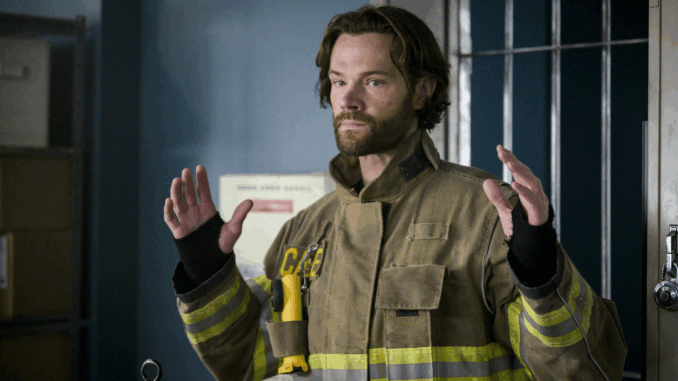
Family: The Hidden Firefighters of Emotional Rescue
While Fire Country is renowned for its heart-stopping wildfire rescues, at its emotional core lies the theme of family—both biological and chosen. The series skillfully depicts how intense family dynamics are both a source of strength and struggle for the Cal Fire crew.
Bode Donovan’s turbulent relationship with his parents highlights the series’ nuanced approach. His father Vince, a retired firefighter, embodies tough love and unspoken expectations, which clash with Bode’s need for acceptance and understanding. Their fraught dynamic mirrors the emotional intensity of battling wildfires—unpredictable, destructive, but with potential for renewal.
Similarly, Sharon Leone’s role as Battalion Chief is complicated by her efforts to shield her son from the dangerous legacy of firefighting while simultaneously preparing him for the realities he will inevitably face. These layers add realism rarely seen in procedural dramas, showing how family legacies affect identity and choice.
Love Under Pressure: Romantic Relationships in a High-Stakes World
Romantic storylines in Fire Country avoid clichés by honestly portraying the strain firefighting careers place on intimacy. The relationship between Bode and paramedic Gabriela Perez is fraught with challenges—long hours, unpredictable danger, and emotional exhaustion threaten to drive a wedge between them.
The show highlights the tension between professional dedication and personal connection, where sacrifices are constant and plans are uncertain. This dynamic is evident in several characters, underscoring a broader truth: for first responders, love is often tested by the unpredictability of the job.
Rather than offering tidy romantic resolutions, Fire Country opts for complexity—showing how love can be a refuge, a battlefield, and sometimes both at once. This realism resonates deeply with viewers who understand that relationships require effort and resilience, especially when one partner faces life-and-death situations regularly.
When Duty Calls: Balancing Career and Personal Life

Fire Country does not shy away from exploring the difficult balancing act firefighters endure between their duty and personal lives. This balance is precarious—emergencies can arise anytime, forcing difficult decisions and missed moments.
This theme is especially poignant in scenes where characters miss family milestones or struggle to communicate with loved ones about their fears. These moments add emotional depth and highlight a universal issue: the sacrifices made by those who serve.
The show also touches on the psychological ripple effects within families. Spouses, children, and parents of firefighters cope with anxiety, uncertainty, and the ever-present risk of loss, providing a fuller picture of firefighting’s cost beyond the frontline.
Family as a Second Line of Defense: Chosen Bonds in the Firehouse
Beyond blood ties, Fire Country portrays the firehouse itself as a surrogate family. The intense, life-threatening nature of firefighting forges bonds akin to kinship among the crew.
The show explores how this chosen family provides emotional support, discipline, and a sense of belonging for characters who may lack traditional family structures. These relationships are complex, sometimes fraught with conflict, but ultimately offer a powerful source of resilience and identity.
For many characters, the firehouse represents a sanctuary—a place where vulnerability is accepted and shared struggles create lasting connections.
Conclusion: Love and Family Amid the Flames
Fire Country excels not only as an action drama but as a heartfelt exploration of the intricate web of family and romantic relationships under extreme pressure. Its honest portrayal of the challenges and rewards of these bonds deepens the series’ emotional impact and broadens its appeal.
By intertwining personal stories with professional heroism, Fire Country reminds us that behind every firefighter is a complex network of relationships that sustain and shape them—sometimes fueling their strength, sometimes threatening to consume them.
